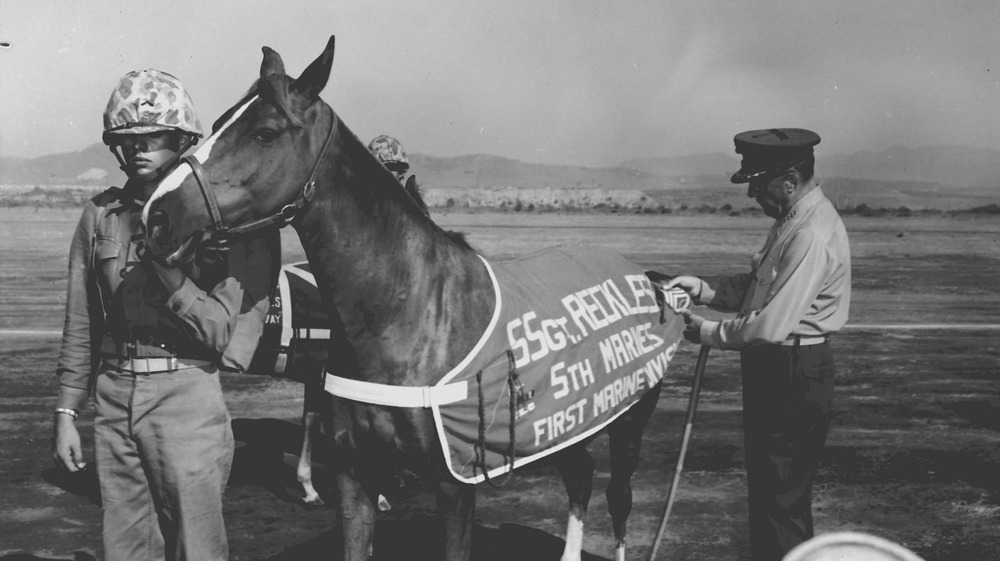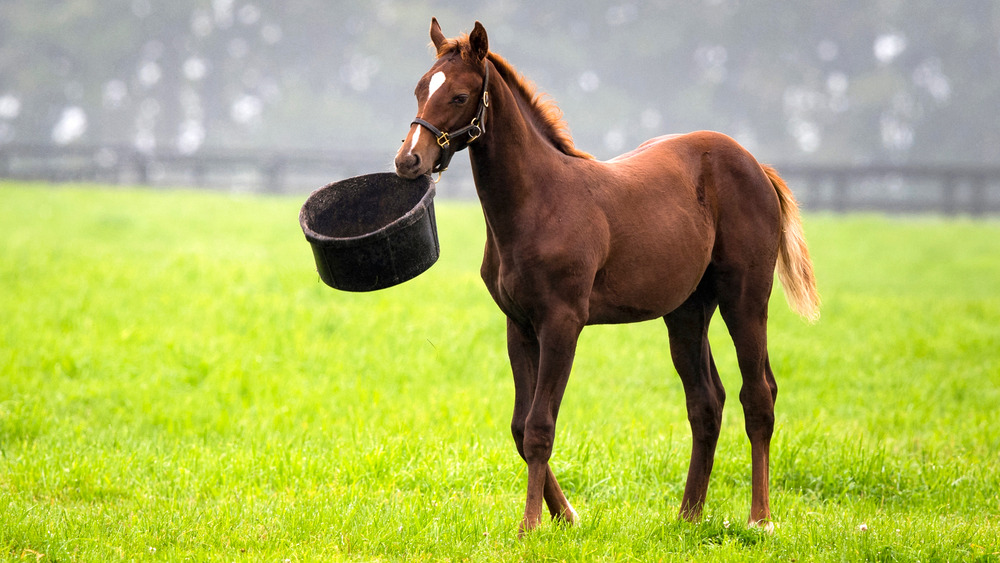The Horse That Became A Sergeant In The Korean War
In the heat of the Battle for Outpost Vegas, one of the bloodiest battles of the Korean War, American Marines were witness to the brave heroics of a horse who carried 9,000 pounds of munitions up a hill over the course of three days (via U.S. Marines). She did it without a rider, and despite being wounded by shrapnel twice. Her name, appropriately, was Reckless, and for her service in this and other battles, she would eventually be promoted to the rank of staff sergeant (via History).
Yes, according to Business Insider, horses can earn military ranks, and yes, Reckless became a staff sergeant, which, on paper at least, put her in a supervisory position, meaning she could theoretically give orders if she ever had a Mr. Ed moment.
Her true life story, though, is even stranger than any of that.
Unlike the U.S. troops, who were imported, Reckless was a Korean native. The U.S. Marines discovered her at a Korean racetrack where her dam raced. She was owned by a stableboy, but he agreed to sell her to them for the tiny sum (even for the time) of $250 — he needed the money to buy a prosthetic leg for his sister, who had tragically lost hers to a landmine.
Reckless was 'one of the boys'
The Marines named her Reckless after their nickname for the "recoilless" rifle she carried the ammunition for (via America's Best Racing). She would soon more than earn the nickname, though — both in battle and in how she behaved in her downtime.
Relentlessly outgoing, Reckless established herself as "one of the boys" among the Marines she worked with. She would push her way into tents and steal drinks of their beer and soda (according to Today in History, her vet had to limit her to two bottles of Coca-Cola a day). In fact, Reckless would consume almost anything, starting each day with bacon, scrambled eggs, and coffee — she was once alleged to have even eaten her own blanket.
Beloved for her fearless service and camaraderie, Reckless was eventually "promoted" to the rank of sergeant in 1954, and lived out her natural life in the U.S., eventually giving birth to four foals and receiving a memorial in her honor at the National Museum of the Marine Corps (via Camp Pendleton Historical Society).

